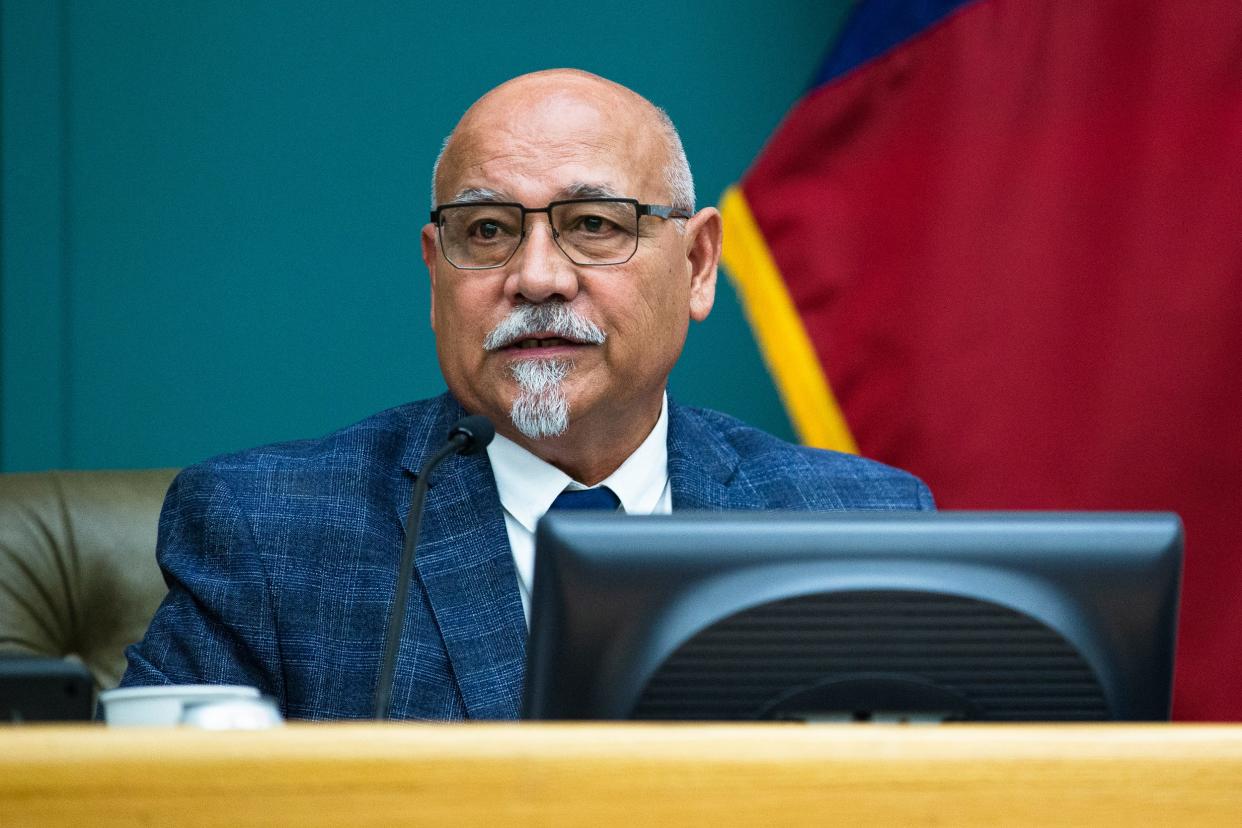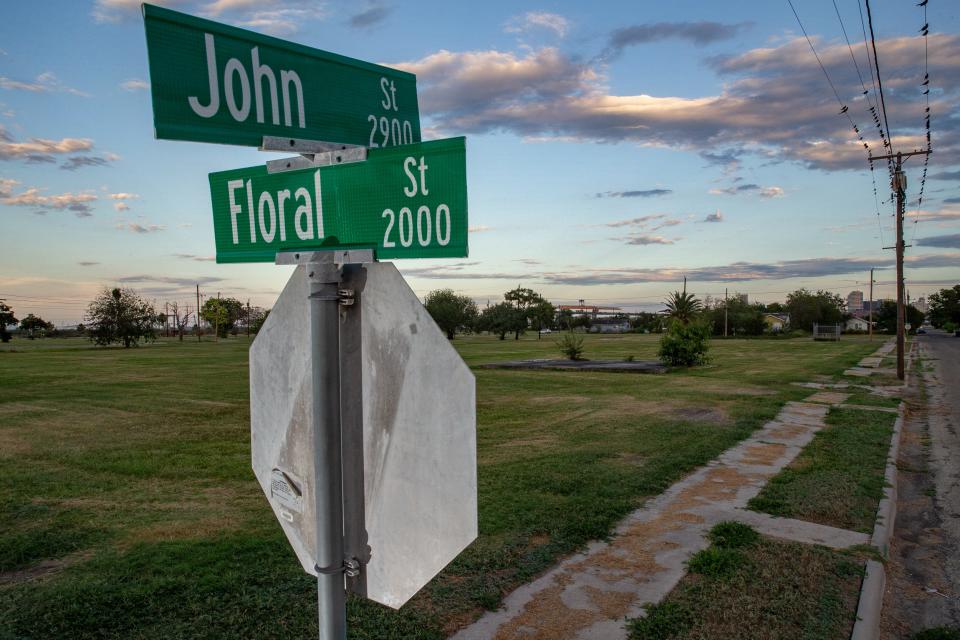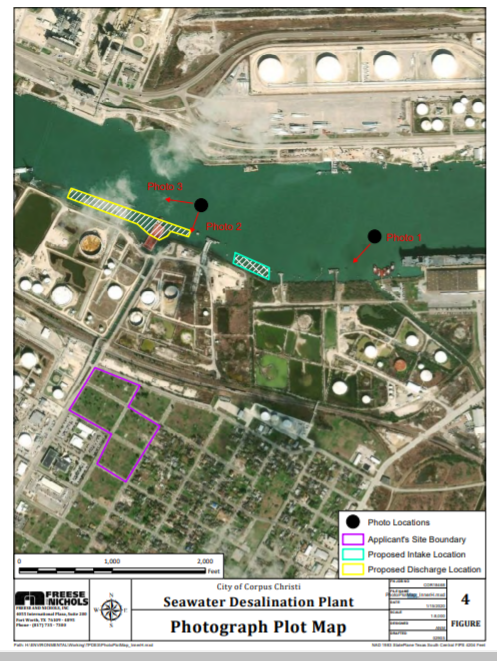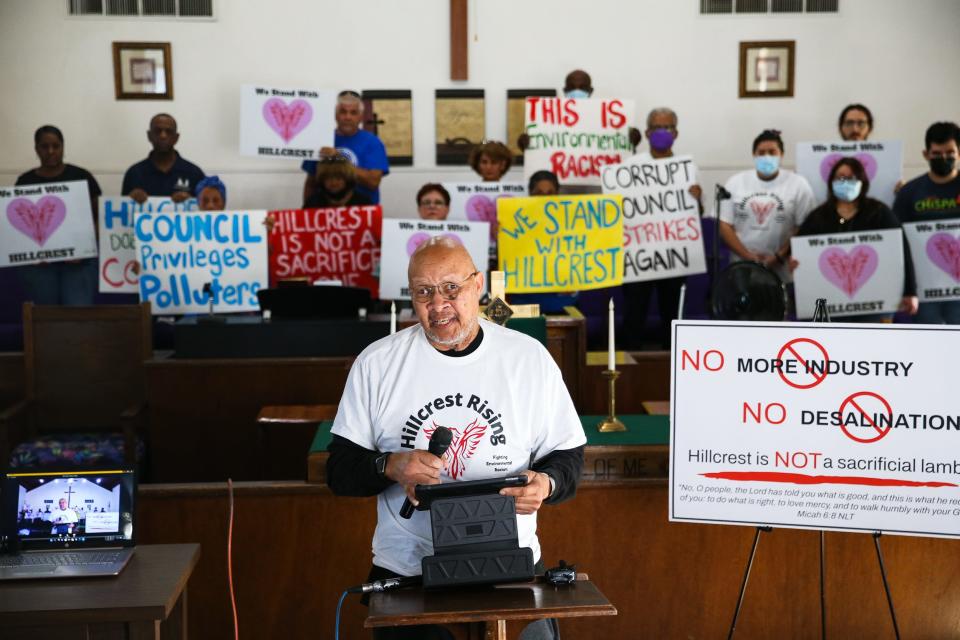Lerma opposes seawater desalination plans in his district, citing environmental concerns

District 1 Corpus Christi Councilman Billy Lerma has been a vocal opponent of the city’s proposed seawater desalination facility near the Corpus Christi Ship Channel, the primary site the city is considering for the costly facility.
Lerma, who represents the district where the project would be located, said he takes issue with the facility's proposed location and its possible environmental impacts on the channel, which he said lacks sufficient water exchange to account for the facility’s discharge of brine, a salty concentration that is considered wastewater.
“We’re going to discharge millions of gallons (of brine) a year … and this is going to be 365 days a year,” Lerma said on Tuesday. “Our currents in that area are not strong enough to disperse this stuff.”
The facility would be located in Hillcrest, a predominantly Black and Hispanic neighborhood on Corpus Christi's Northside. The facility could cost more than $236 million to build and is projected to come online sometime in 2030, according to estimates by the Texas Water Development Board.

City officials have said the proposed facility is needed to establish a "drought-proof" water supply and maintain the city’s position as the primary water provider and supplier for more than 500,000 residents in Corpus Christi and the surrounding region. The city has pushed forward with the project, but a civil rights complaint filed by Hillcrest residents looms over the proposal, and whether the city will acquire the necessary environmental permitting remains to be seen.
Water demand in the region could outpace supply by the end of the decade if new water sources are not established, according to the state's water plan for the Coastal Bend regional water planning area, which includes Corpus Christi and 11 other counties. The water planning area projects that 70% of its new water resources will have to come from desalination plants by 2030.
Lerma said he is in favor of seawater desalination facilities but is opposed to the city's decision on the location, which is often referred to as the "Inner Harbor" site. Lerma's critique of the location is shared by Nueces County Judge Barbara Canales, who in May voiced concerns with the channel's water exchange during a heated Port of Corpus Christi commission meeting.
However, the city has published a commissioned study contending there would not be long-term brine accumulation. City Manager Peter Zanoni and Mayor Paulette Guajardo, who have been largely supportive of the project, have said that multiple sites were considered before they ultimately selected the Inner Harbor site.

Lerma also raised concerns about the expandability of the facility, which he sees as limited. He would prefer the city identity a location that can be built upon as needed when water needs rise in line with industrial buildout and a growing population, he said.
“My question is why are we messing with such a little 30 million-gallon plant when we may need a 100 million-gallon plant for the future?” he said. “There are properties out there that we can expand and add 30 (million), 30, 30, 30 — you can keep adding to it. (The Inner Harbor) location is blocked off.”
In May, Lerma was the sole councilmember to vote in opposition to a motion authorizing city staff to draft a contract to purchase the land the facility would be built on, which will cost more than $5.4 million and is owned by Flint Hills Resources. District 5 Councilman Gil Hernandez abstained from the vote.
The May vote sparked concern from Hillcrest residents and criticism from Port of Corpus Christi CEO Sean Strawbridge. The port owns a lion's share of the property in Hillcrest as a result of a land acquisition and relocation program, which was devised in 2015 to lessen the impacts of the new Harbor Bridge.
More on Hillcrest:A relocation program for Corpus Christi’s Hillcrest neighborhood ended. What about those left behind?
Lerma’s comments come after residents filed a civil rights complaint against the city in late October over the proposed Inner Harbor site. Residents contend the city’s selection of the site — which is located near a “buffer zone” once meant to protect the Hillcrest neighborhood from nearby industry — represents “a clear pattern, unexplainable on grounds other than race,” according to the 44-page complaint.

City staff estimate that there were about 500 households in Hillcrest in 2015. Now, there are approximately 150 households. The neighborhood’s lessened population was considered during the site selection process for the facility, Zanoni has said.
However, Lerma, who was elected to the council after the relocation program began, said his qualms with the proposed facility pertain primarily to the environmental impact and the location — not the proximity to the Hillcrest neighborhood. He declined to comment on the specific claims in the civil rights complaint.
"The residents have a right to do what they need to do and think is best," he said.
Now, with the U.S. Department of Justice overseeing the process, the U.S. Environmental Protection Agency and the U.S. Department of Housing and Urban Development will determine whether a deeper investigation is needed.
Whether a determination has been made was not clear Tuesday. An EPA spokesperson did not respond to an inquiry by press time.
Both the city and the port have spent millions in their respective efforts to obtain environmental permits from the Texas Commission on Environmental Quality for four different locations for seawater desalination facilities on Corpus Christi Bay.
Last month, the Texas Commission on Environmental Quality rejected requests by Hillcrest residents for a contested case hearing and granted the city one of two permits needed to establish the facility — a decision that was celebrated by city staff and leaders. TCEQ issued one permit to the port for its proposed facility on Port Aransas’ Harbor Island the month before.
Work on a fifth, partially built desalination facility on the bay is underway by plastics company Corpus Christi Polymers, which inherited the needed permits from now-bankrupt M&G USA. Construction on the facility resumed in August and is expected to be completed sometime in 2025, the company announced earlier this year.
This article originally appeared on Corpus Christi Caller Times: Corpus Christi councilman opposes seawater desalination plans in his district


